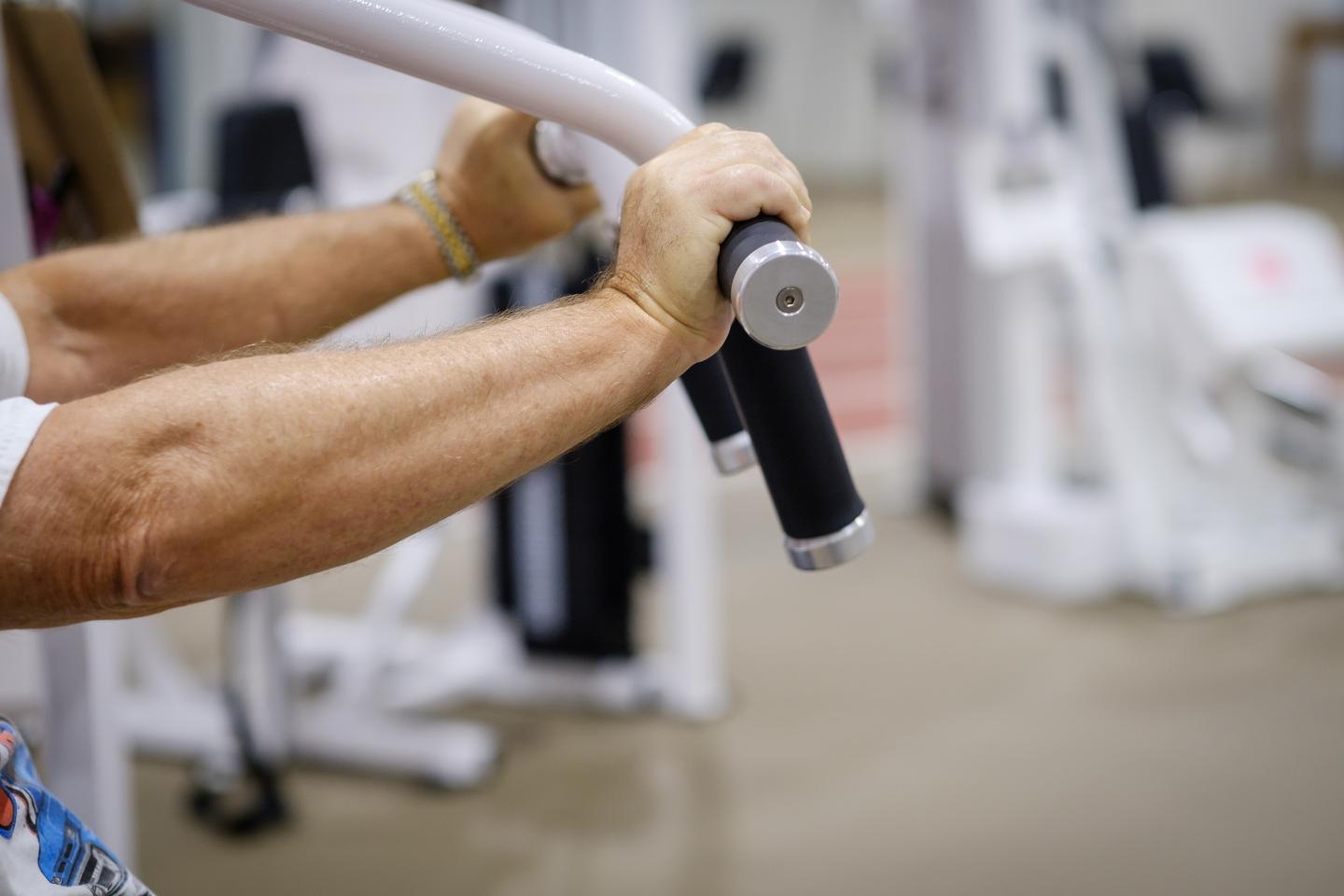
Credit: WFU / Ken Bennett
Weight training or cardio? For older adults trying to slim down, pumping iron might be the way to go.
A new study by researchers at Wake Forest University suggests combining weight training with a low-calorie diet preserves much needed lean muscle mass that can be lost through aerobic workouts.
The findings, "Effect of Exercise Type During Intentional Weight Loss on Body Composition in Older Adults with Obesity," appear in the November issue of the journal Obesity.
"A lot of older adults will walk as their exercise of choice," said Kristen Beavers, assistant professor of health and exercise science at Wake Forest and lead author of the study. "But this research shows that if you're worried about losing muscle, weight training can be the better option."
In this 18-month study of 249 adults in their 60s who were overweight or obese, restricting calories plus resistance training in the form of weight-machine workouts resulted in less muscle loss, but significant fat loss, when compared to weight loss plus walking or weight loss alone.
Losing weight is generally recommended for those with obesity, but preserving muscle – while losing fat – is particularly important for older adults in order to maximize functional benefit, Beavers said.
"Surprisingly, we found that cardio workouts may actually cause older adults with obesity to lose more lean mass than dieting alone."
Loss of lean mass could have important consequences given the high risk of physical disability among the growing population of older adults.
The findings:
+ Total fat loss was much greater when participants combined diet plus walking (about 16 pounds) and diet plus weight training (about 17 pounds). Diet alone resulted in about 10 pounds of fat lost over 18 months.
+ Muscle mass loss was greatest with diet plus walking (about 4 pounds) compared with diet alone or diet plus weight training (each about 2 pounds). Put another way, the percentage of weight loss coming from muscle mass was 20% in the weight loss plus walking group, 16% in the weight loss alone group, and 10% in the weight loss plus weight training group.
+ Loss of fat was associated with faster walking speed, while loss of muscle was associated with reduced knee strength.
These results may be even more important for older adults who gain and lose weight with frequency, because seniors typically don't regain muscle – they regain fat mass – which is "all the more reason for older adults to try and preserve muscle mass during weight loss," Beavers said.
This is the latest study from the Cooperative Lifestyle Intervention Program (CLIP-II), a single-blind, randomized controlled trial. The participants were randomly assigned to one of three groups: a weight-loss-only group, who followed a calorie-restricted diet with no exercise regimen; a weight loss plus cardio (i.e., walking) group; and a weight loss plus weight-training group.
###
Co-authors on this paper included W. Jack Rejeski and Anthony Marsh, co-principal investigators of the CLIP-II study, and Jessica Sheedy, Beverly Nesbit and Jill Gaukstern, all of the Wake Forest University Department of Health and Exercise Science; and Walter Ambrosius, Michael Walkup, Jonathan Burdette and Barbara Nicklas of the Wake Forest School of Medicine.
The research was funded by a grant from the National Institutes of Health/National Heart, Lung, and Blood Institute. Partial support also comes from grants by the National Institute on Aging.
Media Contact
Cheryl Walker
[email protected]
336-758-6073
@WakeForest
Home
Original Source
http://news.wfu.edu/2017/10/31/lose-fat-preserve-muscle-weight-training-beats-cardio-older-adults/ http://dx.doi.org/10.1002/oby.21977





